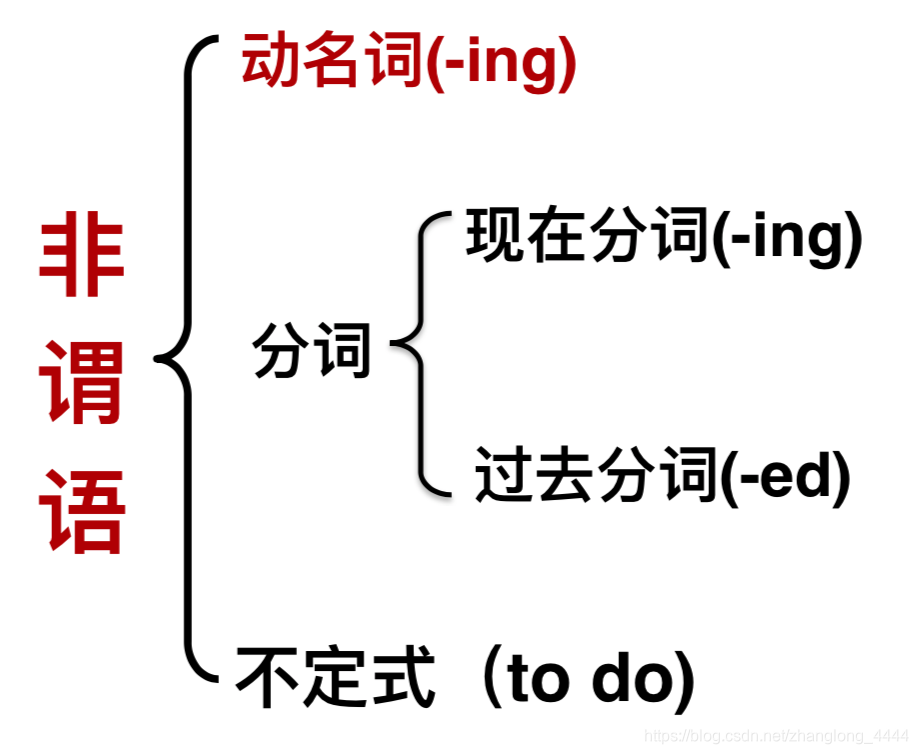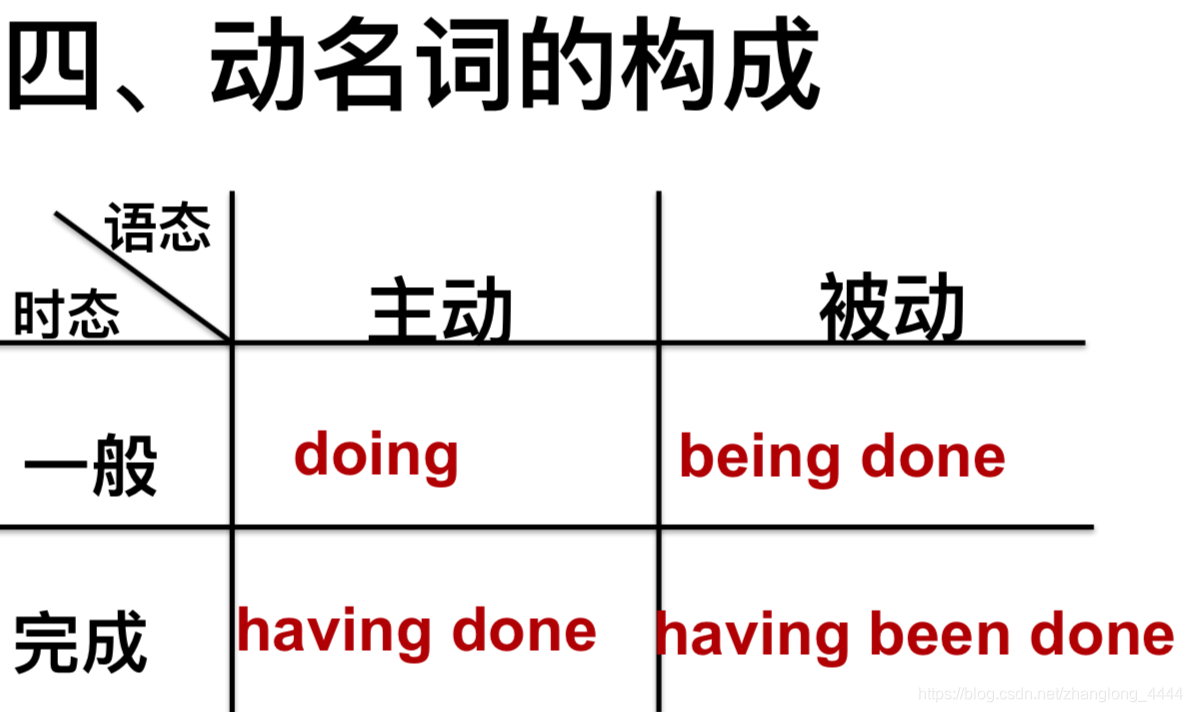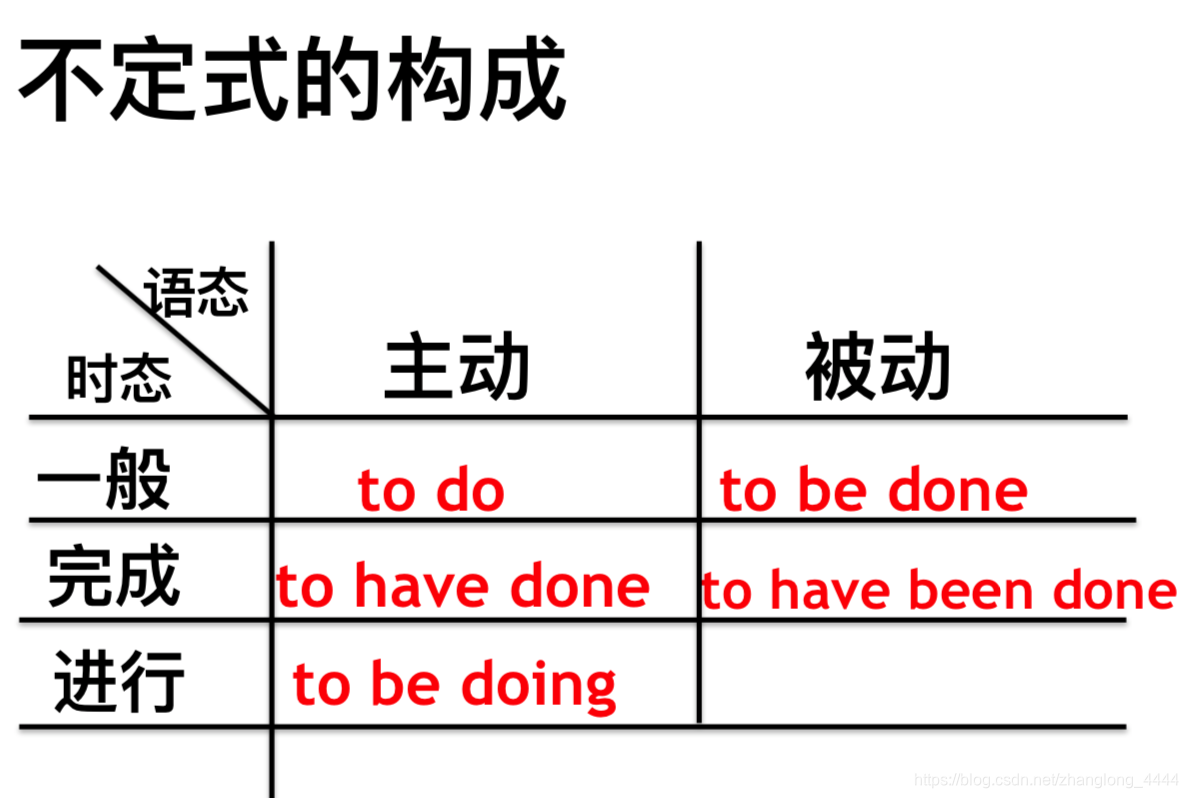
1. 动名词做主语
Keeping a sense of humor (保 持幽默)helps to reduce stress.
2. 动名词做表语
我的爱好是打篮球。
My hobby is playing basketball.
3. 动名词做定语
Swimming pool
Washing machine
Chewing gum
4. 动名词做宾语— 固定搭配
1. Do you mind opening the door for me ?
2. Peter, who had been driving all day,
suggested stoping at the next town.
...look forward to...
Be used to...
1. I am looking forward to hearing from you.
2. I am used to sleeping with the lights on.
二、动名词的逻辑主语
1. Do you mind (I) opening the door?
1. 做主语——所有格
Tom’s refusing to accept the invitation upsets me.
Tom 拒绝接受邀请,这让我很恼⽕火。
2. 做宾语——所有格、普通格
Do you mind my/me making a suggestion?
我提个建议,你介意吗?
三、动名词的时态语态
My mother approved of his joining the army (他加入军队)
Doing : 与主句谓语动词同时发⽣,或者在其之后发生。
I am sorry for telling a lie to the boss.
我很抱歉要向⽼板说谎了了。
I am sorry for having told a lie to the boss.
我很抱歉和老板说了个谎。
Having done: 先于主句谓语动词发⽣。
1.She suggested having lunch at the new restaurant. (have)
2.Will you admit having broken the window? (break)

不定式 to do
词性不确定
充当除谓语以外的其它任何成分
⼀、不定式充当的成分
1. 眼见为实
To see is to believe. Seeing is believing.
保持⾃自我会更更好。
To remain yourself is better.
It is better to remain yourself.
句型一:
It is +形容词/名词+to do
We are impossible to master English in a short time.
我们不可能在短时间内掌握英语。
It is impossible for us to master English in a short time.
句型⼆:
It is +形容词/名词+ for/of sb.+to do
It takes sb+some time+to do sth
乘客从地铁2号线换乘13号线要15分钟。
It takes passengers 15 minutes to transfer from Subway line 2 to line 13.
2、不定式做表语
His biggest wish is to get rid of procrastination(拖延症).
3、不定式做宾语
He promised not to tell anybody about it.
他承诺不把这件事,告诉任何⼈。
1. 动词+to do
2.动词+疑问词+to do
我不知道还能相信谁。
I wonder who to believe.
4、不定式做状语
To point at the chart, the teacher used a broom.
We all live in the past.
We take a minute to know someone,
one hour to like someone,
and one day to love someone,
but the whole life to forget someone.
5、不定式做宾补
1. 请允许我做个自我介绍。
Please allow me to introduce myself.
特例在let, make, have, see, hear, feel, watch, notice 后,不定式要省略 to。
Love has made me see things in a different way.
6、不定式做定语
He could always find a person to play jokes on.
二、不定式的时态语态
We are happy to visit so many historic places in Beijing.
将要参观那么多的名胜古迹,我们感到很高兴。
To do: 与主句谓语动词同时发生,或者在其之后发生。
To have done: 先于主句谓语动词发生。
To have done: 先于主句句谓语动词发⽣生。⽤用在表示打算、需要或计划等动词的过去式 后⾯面,表示过去打算做,但是没有实现的动 作。
1. It seems to have rained last night.
2.It seems to rain any time soon.





 本文深入解析英语语法中动名词与不定式的用法,包括它们在句子中担任的不同角色如主语、表语、宾语等,以及它们的时态和语态变化。通过实例说明,帮助读者更好地理解和运用。
本文深入解析英语语法中动名词与不定式的用法,包括它们在句子中担任的不同角色如主语、表语、宾语等,以及它们的时态和语态变化。通过实例说明,帮助读者更好地理解和运用。
















 3306
3306

 被折叠的 条评论
为什么被折叠?
被折叠的 条评论
为什么被折叠?








